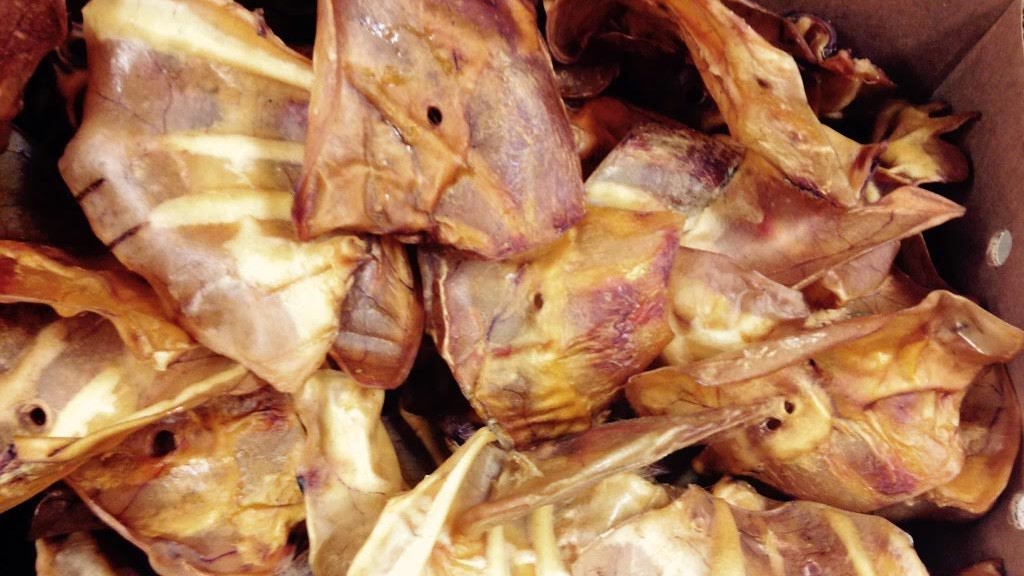
LOCAL
Pig ear salmonella outbreak continues
Several state health departments, the US Food and Drug Administration (FDA), and the Centers for Disease Control and Prevention (CDC) are investigating a multi-state outbreak of Salmonella. The multidrug resistant outbreak strains include Cerro, Derby, London, Infantis, Newport, Rissen. 143 people were infected in 35 states, including Minnesota, and investigators linked the infection to pig ear dog treats. Cases range from June 10, 2015 to July 30, 2019.
Investigators made the connection to the dog treats from interviews with ill patients. Of 100 ill people, 88 reported contact with a dog before getting sick, and 70% of people with available information reported contact with pig ear treats or dogs which were fed pig ear treats. In a survey of healthy people, a significantly lower 61% reported contact with dogs and 16% reported handling dog treats such as pig ears. The testing from products obtained from the homes or suppliers found the multiple stains of Salmonella.
Several firms recalled pig ears in response to the findings, though no single source of the Salmonella was identified. The CDC and FDA currently recommends not purchasing pig ears due to the risk of Salmonella contamination.
NATIONAL
Conflict in California over water policy
To block Trump environmental rollbacks in California, lawmakers are considering legislation to let state agencies lock in Obama era environmental protections from the Endangered Species Act, Clean Air Act, Clean Water Act, Fair Labor Standards Act and other environmental and labor laws.
The bill’s author, Senate President Pro Tem Toni Atkins (D-San Diego), gathered support from influential state labor and environmental organizations. Many state water suppliers and agricultural groups oppose the bill, however, fearing it would not allow any changes to in the endangered species laws and pumping restrictions, which create uncertainty about pumping from the Sacramento delta. Senator Diane Fienstein and four other California Democratic members of Congress from the agriculture-heavy Central Valley also are concerned about the bill, writing in a letter that the law would “prevent the state from incorporating the latest science and other information in permitting decisions.”
The conflict surrounding the law is a continuation of the long running conflict between heavy water users in the Central Valley and Southern California and the environmentalists who want to take measures to protect delta smelt, Chinook salmon and steelhead trout in the delta. Proponents of the bill such as Doug Obegi of the Natural Resources Defense Council are especially concerned about the impending threat of Trump administration policies and the need to act immediately.
“Given the rollback we see in D.C., we need the state to operate at multiple levels to resist the Trump administration,” Obegi said. He added that the need for the legislation grows more essential with every day Trump is in the White House. Senator Atkins says while she is still negotiating and considering amendments, time is running out as the legislative session ends Friday.
INTERNATIONAL
African swine fever found in Philippines
On Monday, the Philippines’s agricultural chief reported African swine fever (ASF) was detected for the first time in the country in dead pigs in some backyard farms. The country is the world’s 10th largest consumer of pork, and the national herd has an estimated 8 million backyard pigs and 4.7 million in commercial facilities.
Agriculture secretary William Dar ordered the tests after reports of an unusual amount of pig deaths in backyard farms in the Rizal province, close to the country’s capital city Manila. According to Dar, over 7000 pigs were culled to control the outbreak, some buried alive. He believes they have successfully controlled the outbreak.
ASF has been detected in seven countries in the East and Southeast Asia regions in the current outbreak and has been found in other areas of Europe and Africa. The Philippines has banned the import of pork from more than a dozen affected countries.
Reuters
ASF Resources
To stay up to date on swine disease news, check out the CAHFS swine disease global surveillance project at z.umn.edu/SwineDiseaseSurveillance.
ASFWatch was CAHFS's fall 2018 Emerging Issues feature, including video and audio podcasts, timelines, maps, fact sheets, infographics, and other timely information. View the resources at z.umn.edu/ASFWatch.
Questions, comments, feedback about today's Weekly Update? Please email Dr. Jim Kincheloe.
Receive the Weekly Update right in your inbox on Tuesdays and Thursdays. Subscribe now at z.umn.edu/WeeklyUpdateSubscribe.
